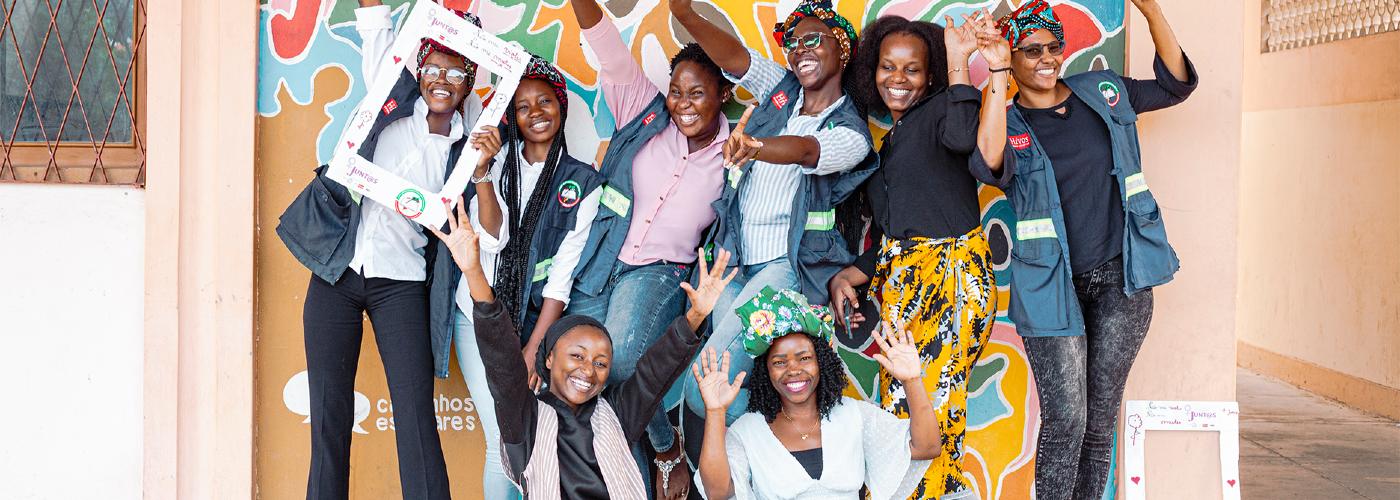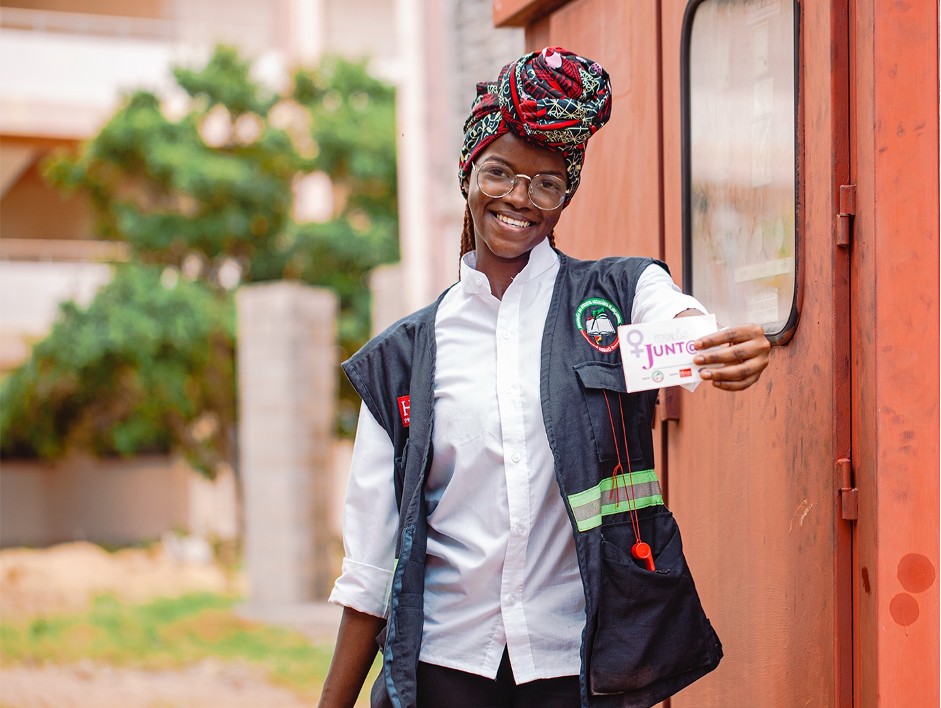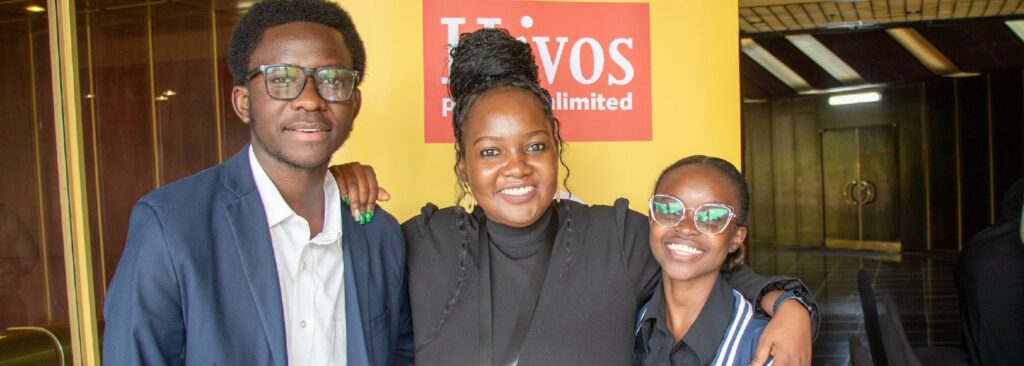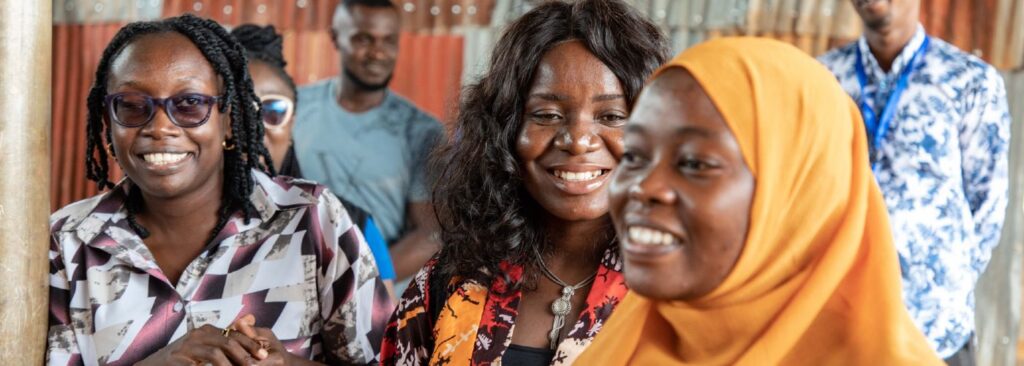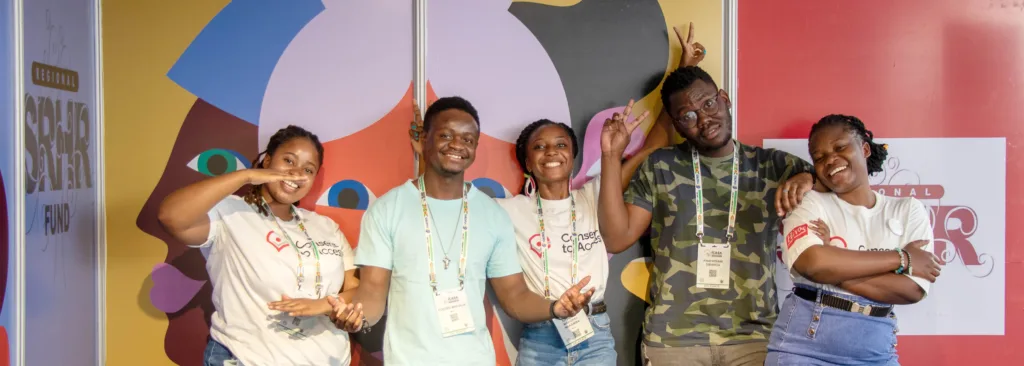In the city of Maputo, Mozambique, a powerful movement is taking root – driven by the vision of young women and girls who are ready to defend their rights and lead inclusive feminist movements to combat gender-based violence (GBV). Behind this transformation is the Mais Junt@s (We’re More Together) project, an initiative implemented by AESMO in partnership with Hivos’ Regional SRHR Fund.
Building feminist leadership
Since 2017, when the partnership with Hivos started, Mais Junt@s has been building feminist movements among secondary school students in Maputo. The project works primarily with young women and girls, most of whom by now have spoken at various local decision-making platforms such as school councils, the District Directorates of Education and Human Development, the police, and justice institutions.
By speaking out and engaging with these forums, they have contributed to a variety of campaigns aimed at reducing GBV and transforming schools and communities into safe spaces for all.
“The big difference between this project and others is its involvement of rights holders in discussions and how it solves problems in secondary schools and health facilities by working through the school councils and the health and co-management committee,” says Zelma Victorino Fijamo of AESMO. “The fact that we are young women working with other girls and young women also helped achieve good results, because clearly there are still difficulties in talking to adults about sexuality.”
Activities with impact
Several of the project’s activities aimed at building capacity and fostering leadership among young women have had particular impact:
Educational sessions
Mais Junt@s’ classes in secondary schools and on virtual platforms have reached over 3,400 participants. The sessions include critical knowledge about gender equality, GBV, and sexual and reproductive health rights, equipping participants with the tools they need to advocate for themselves and their peers.
Advocacy with key stakeholders
A series of 12 advocacy sessions have been held with school and health sector managers. Nine were conducted with education managers, and three with health professionals. These efforts aim to involve female students in local decision-making forums, such as school councils and coordination committees. By doing so, young women are taking an active role in shaping policies that affect their daily lives.
Mentoring and support
Approximately 700 girls have received mentoring through the project, with guidance on handling GBV cases and advice on their SRHR. The mentorship initiative has provided a safe space for these young women to share their challenges and receive support, building their confidence in navigating complex societal issues.
Media advocacy
In addition to person-to-person activities, the project has created a robust media campaign to reinforce its advocacy efforts. This includes newspaper articles, social media campaigns, and radio talk shows that amplify the voices of young women and raise public awareness about GBV and women’s rights.
A movement to shift norms
By placing young women and girls at the center of its activities, Mais Junt@s is developing a generation of leaders who are ready to challenge the status quo and create inclusive, feminist movements. They have raised awareness of GBV in Maputo’s schools, garnering the backing of local policymakers. Through regular training sessions for teachers and students alike, they have started to change people’s perceptions and actions regarding GBV.
“As this movement grows, it is also building public support for feminist ideals, reshaping social norms, and ensuring that the future of Maputo is one where women, girls, and LBTQ+ people are free to live without fear of violence, and where their voices take the lead in decision-making spaces,” adds Zelma.
Mais Junt@s serves as an example of how empowering young girls to lead can foster sustainable change and inspire a broader fight for justice and equality across the region.

